The face you can't avoid in China
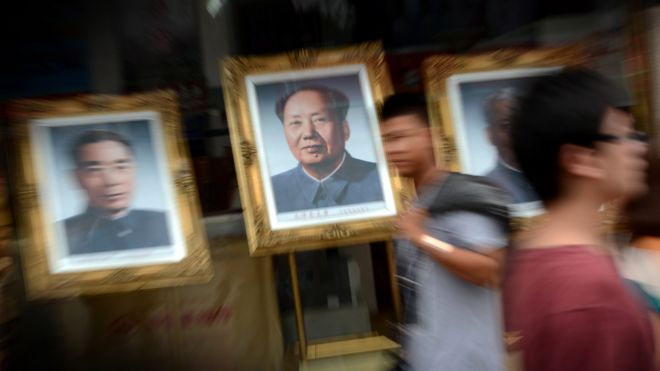
There is one person people across the world identify with China. But who is the real hero of the nation today, asks Stephen Evans in Beijing.
There he beams from the wall of every carriage on the underground in Beijing - benign, kindly eyes, the helmsman of a great enterprise. His face is everywhere in China, overseeing the citizens on their way to work each morning.
He is the guiding light at the start of the working day and the warmth in the evening after honest toil. His face is also at the centre of Beijing, overlooking the comrades as they visit Tiananmen Square. He is truly the icon of modern China.
I refer, of course, to Colonel Sanders, the founder of Kentucky Fried Chicken, which first came to Beijing in 1987.
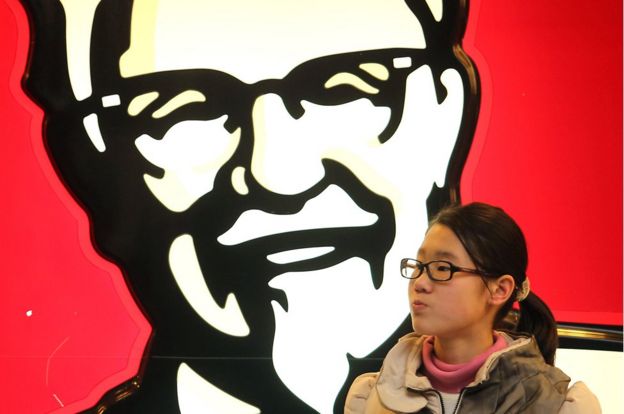 Alamy
Alamy
Mao Zedong's image gets official recognition on banknotes, it's true, but he's not prominent on walls around the city. You have to look hard. I did go to a Hunan restaurant the other day, specialising in the fabulous, ultra-spicy food from his home region.
The portrait of Mao looked down on our dining table. The waitresses were dressed as Red Guards and it seemed like a theme restaurant.
But a giant gold-painted statue in Henan, that came to be known as the Mega Mao, drew widespread scorn online and has just been demolished - days after it was erected. An official said it hadn't been registered and approved.
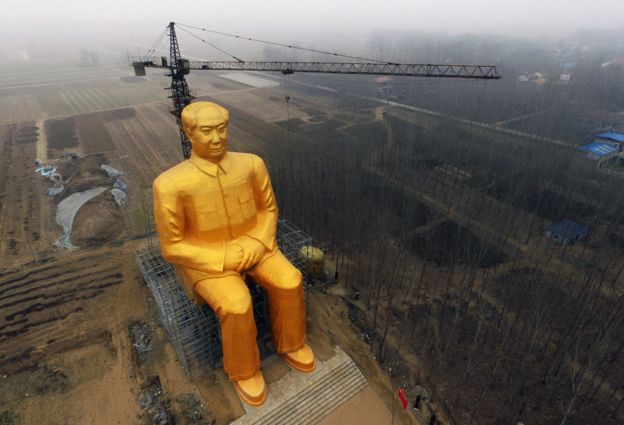 EPA
EPA
You can still queue in the fierce cold to see the real thing though, the embalmed Mao Zedong in the Mausoleum on Tiananmen Square. There he lies, encased in his crystal coffin. He looks like he might be at peace with the world, but surely he can't be because all around him is a world that defies all his hopes.
It is the world of Colonel Sanders, the true face of today's China. At the last count, there were about 4,900 KFCs in China, serving, of course, what they call "finger-lickin' good" fried chicken, but also Chinese dishes like congee, a porridge featuring pork, pickles, mushrooms, egg - a real porridge.
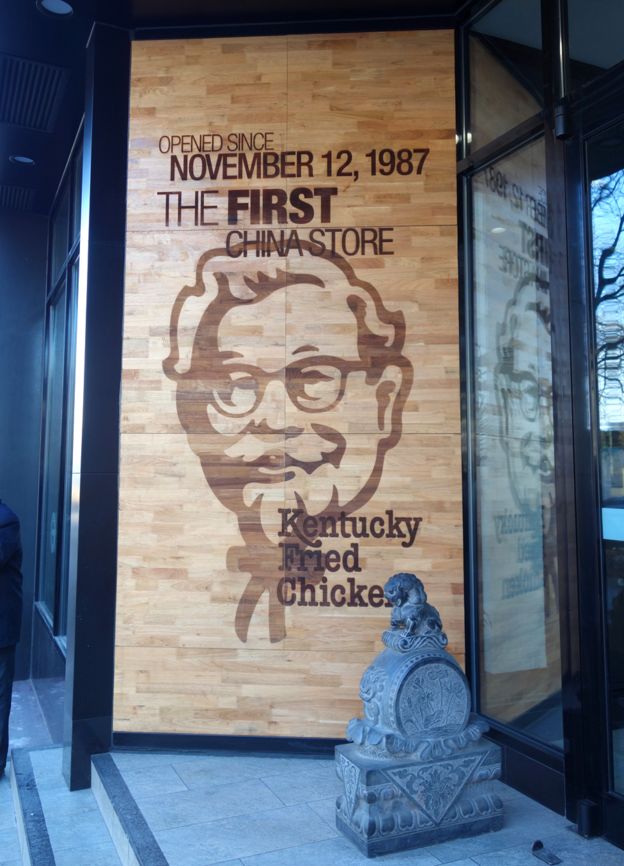

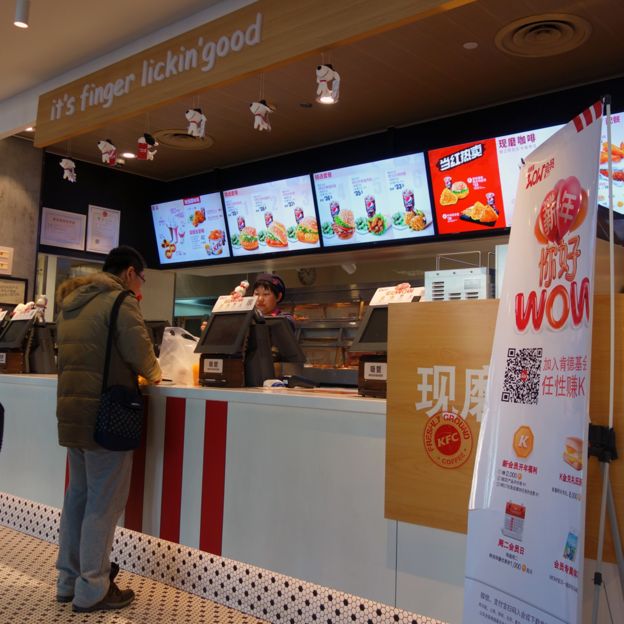
It's true that "finger-lickin' good" as a slogan does not have the gravitas of some of Mao's teachings from the Little Red Book but, on the other hand, KFC is more in tune with the times.
Today's Beijing is the world of shiny black Mercs, with every speck of dust brushed from the chrome by flunkies in the car park outside ultra-fancy hotels, while the rich greet each other in the warmth inside the opulent building.
I went to a reception the other day where fine French wine was served by men in white gloves at 8:30 in the morning. There were female ornaments - for that's how they seemed to be treated - dressed in ball gowns with skimpy, shimmering sequinned tops.
At the centre, China's richest man, Wang Jianlin, estimated to be worth $27bn (£18.7bn). He recently bought a house in London for what the (British) newspapers said was $115m (£80m).
He seemed nice enough but he had all the air of the uber-rich - people stepped forward and did things for him, they second-guessed his next need, taking his empty glass, opening a door, ushering him here, ushering him there, being concerned that everything was exactly right for him. Kowtowing.
No doubt it's the same wherever the seriously rich gather. But this is communist China. This is not, one imagines, what Mao wanted.
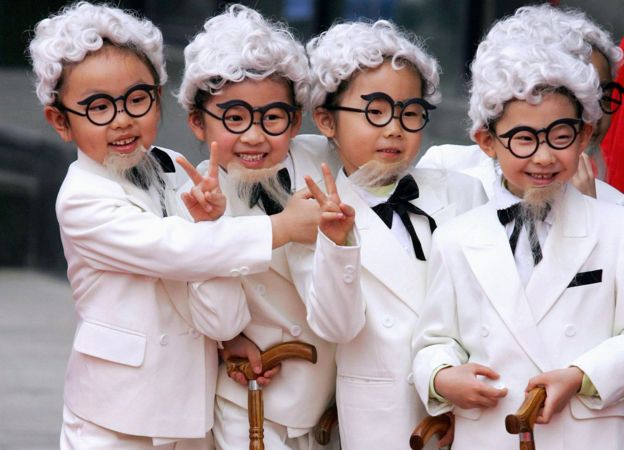 Getty Images
Getty Images
Capitalism and capitalists are adaptable creatures. Over the years they have embraced both the communist party and turbo-capitalism. The Hurun Research Institute recently reported that one third of the people listed as China's wealthiest are in the communist party. Many members of the National People's Congress, ostensibly China's parliament, are billionaires, according to the same research.
Mao talked about contradictions in an essay - in 1937 if you want to know - what he called the unity of opposites, though I don't actually know what on Earth he meant. And Marx talked of the "contradictions of capitalism" which would bring the system down.
Contradiction is the right word. Marx's prediction of the collapse of capitalism has not happened here - instead it's been revved up to hyper-speed by consumerism, an urgent desire for every designer brand. And yet, 80% of the biggest companies remain state-owned. It's actually a kind of state-capitalism.
The communist party wants the benefits of capitalism but is now getting uneasy about the downside - like crashing stock markets.
Does today's Chinese communist party revere Mao or Colonel Sanders? Who is the true icon of China?
The people seem to like Colonel Sanders.
How to listen to From Our Own Correspondent:
BBC Radio 4: Saturdays at 11:30. Listen online or download the podcast.
BBC World Service: At weekends - see World Service programme schedule orlisten online.
Subscribe to the BBC News Magazine's email newsletter to get articles sent to your inbox.
The face you can't avoid in China
![]() Reviewed by Unknown
on
1:25:00 AM
Rating:
Reviewed by Unknown
on
1:25:00 AM
Rating:




